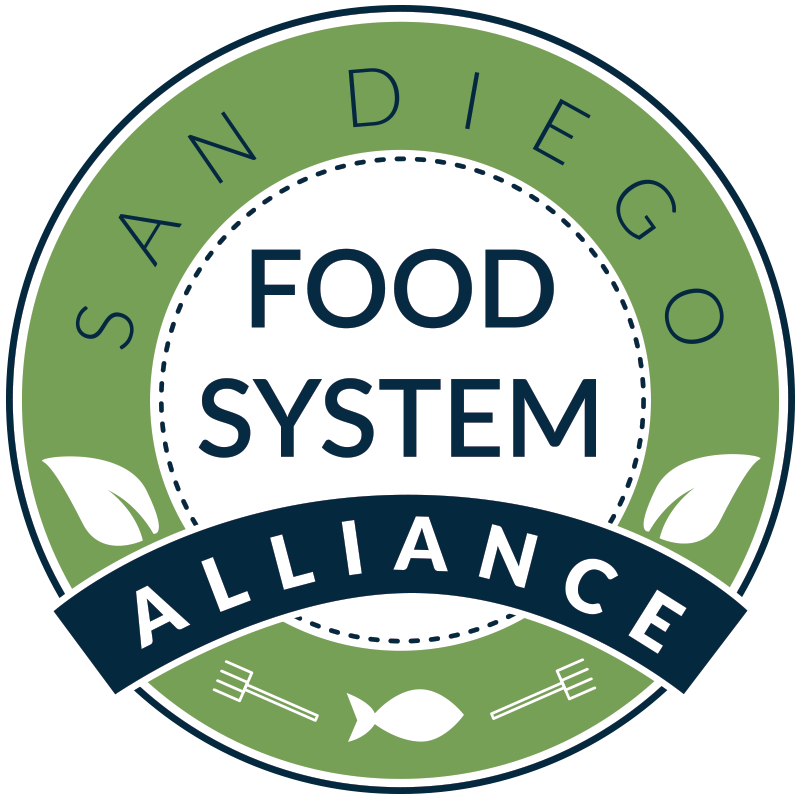Exploring Community Wealth Building in San Diego County’s Food System
Community wealth building models foster collaborative, inclusive, and local control over businesses, housing, and land use decisions. They have the capacity to directly address pressing social issues by building power and generating opportunities for the most vulnerable members of our society.
In the U.S. food system, industrial agriculture, long supply chains, and consolidation of power have been common since the 1950s.
Nationally, just a few companies dominate almost all aspects of food production:
20% of farms control nearly 70% of U.S. farmland
Four meatpackers slaughter 85% of beef
Four companies control 63% of the retail market
The highly concentrated industrial food system—compounded by increasing natural disasters, public health crises, and growing inequalities—perpetuates deep vulnerabilities and threatens the resiliency of people, cultures, livelihoods, and ecosystems.
In this report, we explore opportunities to normalize community wealth building models in the context of San Diego County’s food system. Our research focuses on four models of local, broad-based ownership: Cooperatives, community land trusts, equitable-food oriented development, and employee stock ownership plans.
Exploring Community Wealth Building in San Diego County’s Food System is part of San Diego County Food Vision 2030—a bold, 10-year plan and movement to cultivate a healthy, sustainable, and just food system in our region. Community wealth building is a key strategy in the Vision.
This report was supported by the Beyster Foundation for Enterprise Development (BFED). We thank BFED for their vision and partnership.
Exploring Community Wealth Building in San Diego County’s Food System is part of San Diego County Food Vision 2030—a bold, 10-year plan and movement to cultivate a healthy, sustainable, and just food system in our region. Community wealth building is a key strategy in the Vision.
This report was supported by the Beyster Foundation for Enterprise Development (BFED). We thank BFED for their vision and partnership.

